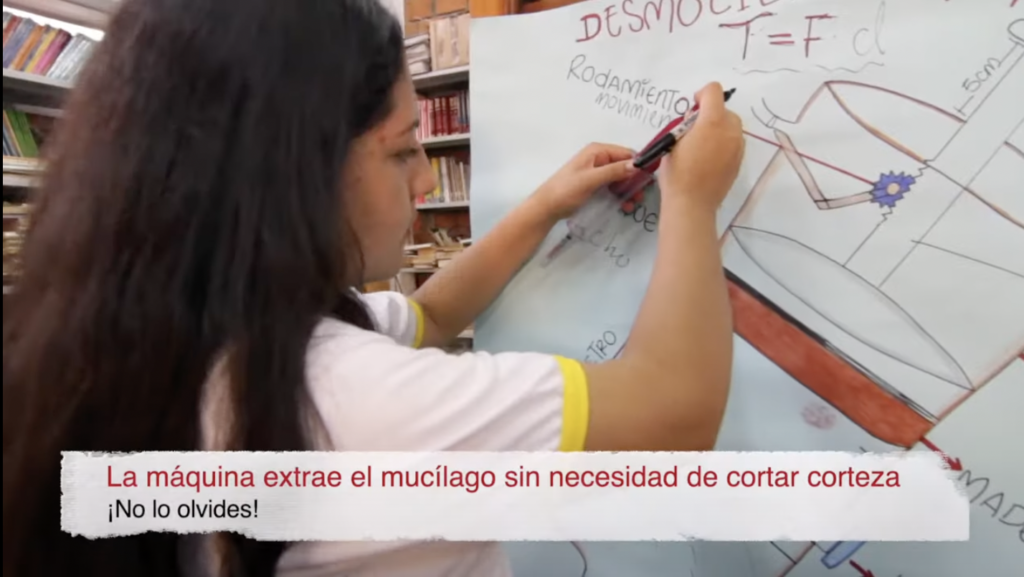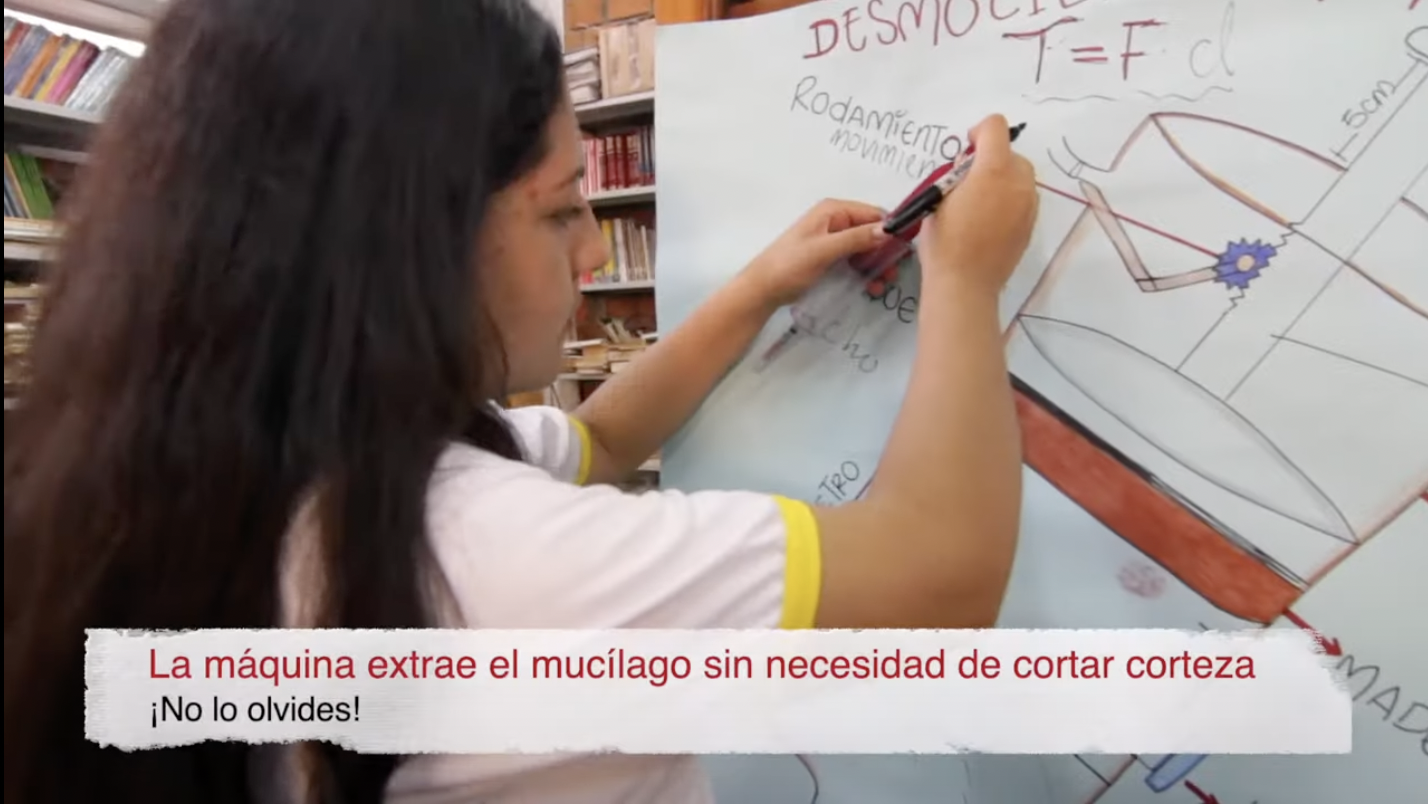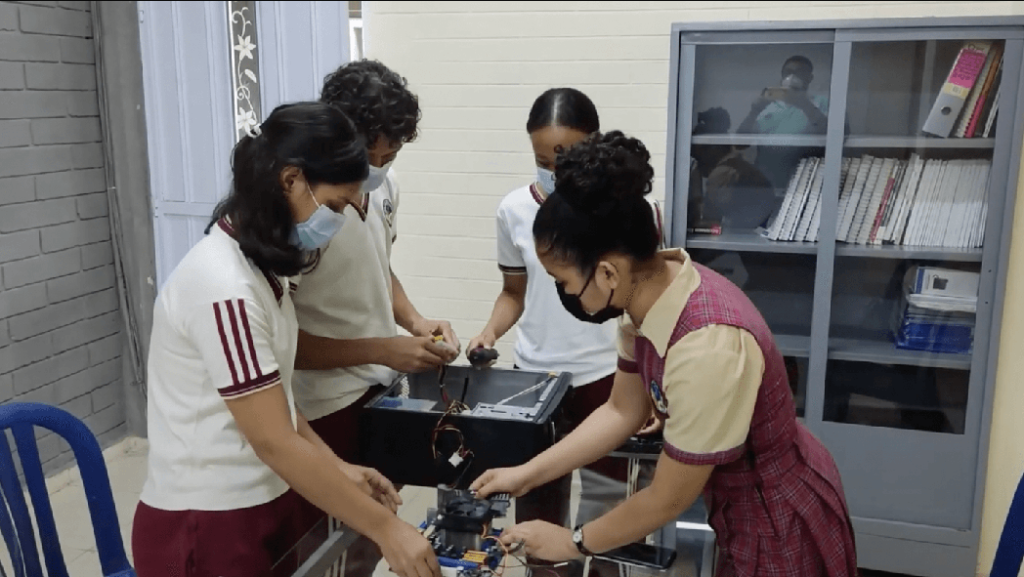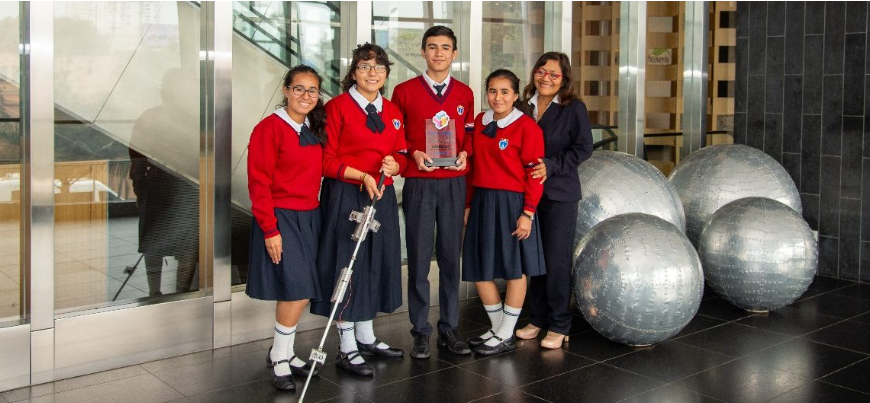Project gallery

De-mucillator
Report sent by the Teacher
Adilson Nilton Barahona RiascosSchool
Sagrado Corazón de Jesús Sandona, Nariño, Corregimiento El Ingenio, ColombiaProject team composition
Donaldo Enríquez, Darío Martínez, Katherine Zamudio Barahona, Yuliana Timaná
Age of students
15 to 17 years oldOther areas of knowledge
Geography, Social Sciences or SociologyProject duration
For more than a yearSoft skills
Collaboration, Communication, Creativity, Critical thinkingSTEM areas
Engineering, Sciences, TechnologyEmpathy: learning from people’s values and needs
Project objective, problem to be solved, and main actions
The main objective of the project was to recover the tree species Heliocarpus americanus for the panela(sugar cane) industry, incorporating a technological element that extracts an input called mucilage without destroying the species.
We work with the question: is it possible to recover the species Heliocarpus americanus for the production of clean panela? How is it possible to extract the input called mucilage from the tree called Balso Blanco without it being affected and dying?
To conduct the project, first of all, programming of the discipline of Technology – Informatics is developed, which includes an environmental education practice in which they dialogue with the context that allows them to analyze the problems of the locality, systematize and analyze in different groups where to propose intervention and research proposals that give them more breadth and understanding of the problem for which they finally provide a technological solution.
The project was the idea of the young people, who then came to me.
Definition: better understanding of the challenges
Deepening into the issue and involvement of the school and local community
The community was involved through context investigation processes, generating material written by students when questioning the community. This material served as input for the analysis of the problem. They visited not only farmers but also dialogued with entities linked to the problem and the university to see what solutions have been proposed for the problem.
The University of Nariño helped with training and research, Trapicheros with information about the panela manufacturing process, Fedepanela (panela federation) with information, and the farmers with information as well.
Ideation: developing creative solutions
The development of the solution
To develop the solution, we did:
1. Context Reading
2. Analysis of the local environmental situation
3. Bibliographic and field research
4. Systematization
5. Generation of solutions (materials, resistance, type of energy, accessibility, scalability, sustainability)
6. Mockup
7. Support
8. Prototyping
Prototype: making ideas tangible
The construction of the prototype
As a prototype, the model of the proposed solution was presented.
Test: putting ideas out into the world
Evaluation of the process and the developed solution
A avaliação do projeto é desenvolvida nos cenários expositivos entre as turmas de cada série e depois de forma geral em feiras de caráter institucional. Na avaliação, foram utilizadas rubricas e observações das melhorias no desempenho das crianças nos diferentes cenários graças ao feedback dos colegas.
Reflections and pedagogical practices
The value of participating in Samsung Solve for Tomorrow
I could see the value of the pedagogical process both in terms of children’s knowledge and skills and in the recognition of innovation and projection of their ideas. The school’s participation in this type of project and initiative has increased, as have the territorial entities that paid attention to the students’ proposals.
Achievements and advances perceived by the teacher, throughout the process
Recognition of the pedagogical process, as well as the development of investigative skills in children, critical reflection and teamwork skills and autonomy; motivation for learning, as well as the generation of significant knowledge from different areas. An increase in national education test scores was also observed.
Challenges faced
1. Economic support for prototype development
2. Support in the construction of laboratories or workshops
3. Bad connectivity
4. Technological inputs
What I would change in the process would be for it to be more rigorous in terms of monitoring and systematization and also to leave the tests on a blog or website for interaction with the students themselves.
Learning incorporated into the teacher’s routine and practice
Research and systematization processes.






